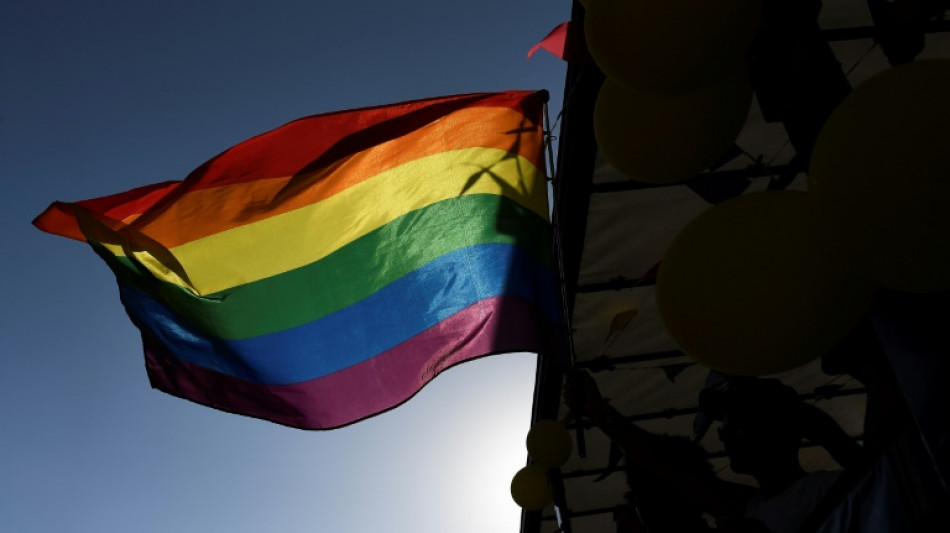
-
 England 77-2 at tea, need 98 more to win chaotic 4th Ashes Test
England 77-2 at tea, need 98 more to win chaotic 4th Ashes Test
-
Somalia, African nations denounce Israeli recognition of Somaliland

-
 England need 175 to win chaotic 4th Ashes Test
England need 175 to win chaotic 4th Ashes Test
-
Cricket Australia boss says short Tests 'bad for business' after MCG carnage

-
 Russia lashes out at Zelensky ahead of new Trump talks on Ukraine plan
Russia lashes out at Zelensky ahead of new Trump talks on Ukraine plan
-
Six Australia wickets fall as England fight back in 4th Ashes Test

-
 Man Utd made to 'suffer' for Newcastle win, says Amorim
Man Utd made to 'suffer' for Newcastle win, says Amorim
-
Morocco made to wait for Cup of Nations knockout place after Egypt advance

-
 Key NFL week has playoff spots, byes and seeds at stake
Key NFL week has playoff spots, byes and seeds at stake
-
Morocco forced to wait for AFCON knockout place after Mali draw

-
 Dorgu delivers winner for depleted Man Utd against Newcastle
Dorgu delivers winner for depleted Man Utd against Newcastle
-
US stocks edge lower from records as precious metals surge

-
 Somalia denounces Israeli recognition of Somaliland
Somalia denounces Israeli recognition of Somaliland
-
The Cure guitarist and keyboard player Perry Bamonte dies aged 65

-
 Draper to miss Australian Open
Draper to miss Australian Open
-
Police arrest suspect after man stabs 3 women in Paris metro

-
 Former Montpellier coach Gasset dies at 72
Former Montpellier coach Gasset dies at 72
-
Trump's Christmas gospel: bombs, blessings and blame

-
 Russia lashes out at Zelensky ahead of new Trump meeting on Ukraine plan
Russia lashes out at Zelensky ahead of new Trump meeting on Ukraine plan
-
Salah helps Egypt beat South Africa and book last-16 place

-
 Australia's Ikitau facing lengthy lay-off after shoulder injury
Australia's Ikitau facing lengthy lay-off after shoulder injury
-
Another 1,100 refugees cross into Mauritania from Mali: UN

-
 Guardiola proud of Man City players' response to weighty issues
Guardiola proud of Man City players' response to weighty issues
-
Deadly blast hits mosque in Alawite area of Syria's Homs

-
 The Jukebox Man on song as Redknapp records 'dream' King George win
The Jukebox Man on song as Redknapp records 'dream' King George win
-
Liverpool boss Slot says Ekitike reaping rewards for greater physicality

-
 Judge jails ex-Malaysian PM Najib for 15 more years after new graft conviction
Judge jails ex-Malaysian PM Najib for 15 more years after new graft conviction
-
Musona rescues Zimbabwe in AFCON draw with Angola

-
 Zelensky to meet Trump in Florida on Sunday
Zelensky to meet Trump in Florida on Sunday
-
'Personality' the key for Celtic boss Nancy when it comes to new signings

-
 Arteta eager to avoid repeat of Rice red card against Brighton
Arteta eager to avoid repeat of Rice red card against Brighton
-
Nigeria signals more strikes likely in 'joint' US operations

-
 Malaysia's former PM Najib convicted in 1MDB graft trial
Malaysia's former PM Najib convicted in 1MDB graft trial
-
Elusive wild cat feared extinct rediscovered in Thailand

-
 Japan govt approves record budget, including for defence
Japan govt approves record budget, including for defence
-
Seoul to ease access to North Korean newspaper

-
 History-maker Tongue wants more of the same from England attack
History-maker Tongue wants more of the same from England attack
-
Australia lead England by 46 after 20 wickets fall on crazy day at MCG

-
 Asia markets edge up as precious metals surge
Asia markets edge up as precious metals surge
-
Twenty wickets fall on day one as Australia gain edge in 4th Ashes Test

-
 'No winner': Kosovo snap poll unlikely to end damaging deadlock
'No winner': Kosovo snap poll unlikely to end damaging deadlock
-
Culture being strangled by Kosovo's political crisis

-
 Main contenders in Kosovo's snap election
Main contenders in Kosovo's snap election
-
Australia all out for 152 as England take charge of 4th Ashes Test

-
 Boys recount 'torment' at hands of armed rebels in DR Congo
Boys recount 'torment' at hands of armed rebels in DR Congo
-
Inside Chernobyl, Ukraine scrambles to repair radiation shield

-
 Bondi victims honoured as Sydney-Hobart race sets sail
Bondi victims honoured as Sydney-Hobart race sets sail
-
North Korea's Kim orders factories to make more missiles in 2026

-
 Palladino's Atalanta on the up as Serie A leaders Inter visit
Palladino's Atalanta on the up as Serie A leaders Inter visit
-
Hooked on the claw: how crane games conquered Japan's arcades


Scientists discover genetic underpinnings of bisexuality
For the first time, scientists have identified genetic variations associated with human bisexual behavior -- and found these markers are linked to risk-taking and having more offspring when they are carried by heterosexual men.
Jianzhi "George" Zhang, a professor at the University of Michigan and senior author of the new research, told AFP it helped answer the long-standing evolutionary puzzle of why natural selection has not eliminated the genetics underpinning attraction within the same sex.
The study, published Wednesday in Science Advances, was based on data from more than 450,000 people of European descent who signed up for the UK Biobank, a long-term genomics project that has proven a major boon for health research.
It builds on growing research including a seminal 2019 paper in Science that found genetic variants influenced to some extent whether a person engaged in same-sex behavior, though environmental factors were more important.
"We realized that in the past, people lumped together all homosexual behavior...but actually there's a spectrum," Zhang said, explaining part of the motivation for the new work.
By studying participants' complete sets of DNA, or genomes, and combining that information with survey responses, Zhang and his co-author Siliang Song were able to confirm the signatures associated with same-sex behavior and bisexual behavior were in fact distinct.
- 'Nature is complicated' -
This meant they could be analyzed separately -- which in turn revealed that male heterosexuals carrying the markers, which they called bisexual behavior (BSB)-associated alleles, father more children than average and thus carry those genes forward.
What's more, men who describe themselves as risk-takers tended to have more children and were more likely to carry BSB-associated alleles.
"Our results suggest that male BSB–associated alleles are likely reproductively advantageous, which may explain their past persistence and predict their future maintenance," the authors wrote.
Although the UK Biobank's survey simply asked respondents whether they considered themselves risk-takers or not, it is likely risk-taking behavior involves more unprotected sex and more partners.
"Nature is complicated," said Zhang, reflecting on the fact that a single gene can influence multiple traits -- a phenomenon known as "pleiotropy."
"Here we're talking about three traits: number of children, risk taking, and bisexual behavior: they all share some genetic underpinnings."
On the other hand, exclusive same-sex behavior (eSSB) associated alleles were correlated with having fewer children when carried by heterosexual men -- suggesting that over time these traits will fade away.
However, the UK Biobank data also revealed the proportion of people reporting both bisexual and homosexual behavior has been rising for decades, which is probably due to growing societal openness.
The authors estimated, for instance, that whether a person is bisexual or not in their behavior is 40 percent influenced by genetics, and 60 percent by the environment.
"We want to make it clear that our results predominantly contribute to the diversity, richness, and better understanding of human sexuality," they stressed. "They are not, in any way, intended to suggest or endorse discrimination on the basis of sexual behavior."
A.Jones--AMWN



